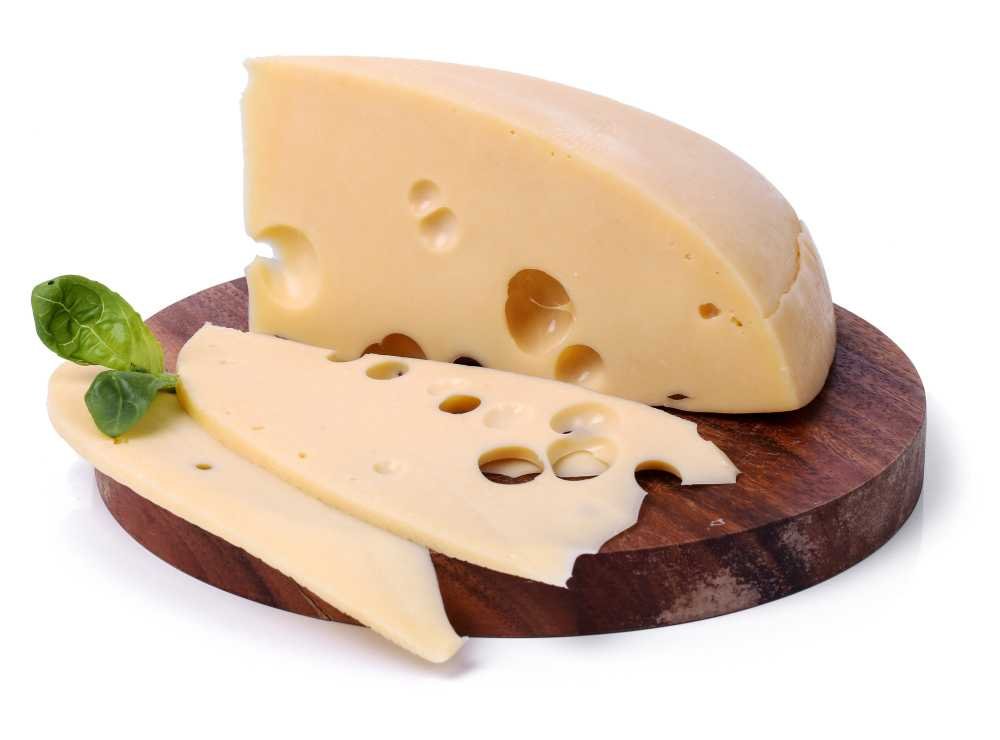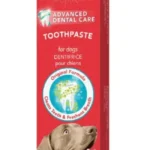Cheese is widely regarded as delicious by both humans and dogs. Its flavorful taste and enticing aroma is particularly appealing to our four-legged companions. However, it’s crucial to exercise caution before offering your dog any cheesy delights. So, is it safe to share a cheesy treat with your canine friend?
The answer is not completely black and white, but the good news is yes. While numerous types of cheese are out there, not all are suitable for dogs, as they can cause digestive issues. Nonetheless, you can give certain varieties to your dog in small, treat-sized portions without any problems.
Can Dogs Eat Cheese?
Yes, dogs can consume cheese in moderate amounts without adverse effects. Cheese can be a delightful dog treat. Also one can use it as a convenient medication administration method. Dogs can safely consume cheese without any detrimental effects on their health. Nevertheless, it’s crucial to remember that certain dogs may have lactose intolerance, which could hinder their ability to digest cheese effectively.
Although you can include cheese in your dog’s diet, it’s important to consider a few things. Cheese contains high levels of fat, so feeding excessive amounts regularly can result in weight gain and contribute to obesity in dogs. An even more concerning issue is that cheese may trigger pancreatitis, a severe and potentially life-threatening condition for dogs.
Best Type of Cheese for Dogs
There are several types of cheeses that dog owners should consider as healthier options for their dogs compared to others. As advised by a recent study, choosing cheeses that have reduced fat content for your furry friend is recommended.
Aged cheeses such as cheddar, parmesan, and Swiss have minimal lactose content, making them less likely to cause digestive discomfort than full-fat mozzarella sticks. String cheese, too, has low levels of lactose and salt, making it a suitable option for dogs. However, the stringiness can pose a swallowing challenge, particularly for puppies. It is crucial to always cut string cheese into smaller pieces before feeding it to your dog.
Processed cheese products such as American cheese contains:
- Excessive additives
- Artificial coloring
- High levels of sodium
This makes them unsuitable and potentially unsafe for dogs to consume. These additives can potentially cause sodium poisoning and adverse reactions in dogs. For the well-being of your furry friend, it’s best to avoid feeding them any processed cheeses and opt for natural cheese alternatives instead.
How Much Cheese is Ok for Dogs?
Determining the appropriate amount of cheese to feed to your dog depends on various factors such as:
- Your dog’s size
- Your dog’s tolerance for cheese
- The dog’s overall diet
Below are some general suggestions to consider regarding the amount of cheese your dog should feed:
- Remember to administer treats in moderation, as they are meant to add to your dog’s diet. This principle applies when feeding your dog cheese. For instance, you can sprinkle parmesan cheese on your dog’s food or add some cottage cheese to your dog’s regular food.
- As an occasional treat, always offer small portions of cheese separately.
- When giving non-antibiotic pills to your dog, use enough cheese to cover the medication.
Remember that the above recommendations provide a general guideline, and it’s important to consult with a veterinarian for specific dietary advice tailored to your dog’s needs.
Are Dogs Sensitive to Cheese?
The possibility of cheese allergies in dogs is often disregarded, as it is frequently mistaken for a reaction to environmental factors. Among the various allergens in a dog’s diet, dairy products, including cheese, are prominent culprits. While most pets tend to handle cheese without issues, certain dogs can develop an allergic response to these products.
Lactose-intolerant dogs lack the necessary enzyme to break down the lactose found in cheese. Consequently, they struggle to digest cheese, which can lead to unpleasant symptoms like:
- Diarrhea
- Bloating
- Vomiting
- Loss of appetite.
It’s important to understand this, as it might be wise to avoid feeding your lactose-intolerant dog cheese. However, you can introduce dog food with cheese, for example, burger dog food, meaty burger dog food, or cheese-flavored food.
Allergies do not discriminate based on age. While it is commonly observed that airborne allergies tend to develop in the early stages of dogs’ lives, cheese-based allergies can emerge at any point. Senior dogs are more susceptible to cheese sensitivity and intolerance.
Benefits of Cheese to a Dog
Moderate consumption of cheese offers various benefits to dogs. Here are the benefits:
Cheese is Packed with Nutrients
Cheese is a nutrient-dense food for dogs, abundant in protein, essential vitamins, and minerals necessary for their well-being. However, it’s important to exercise caution as too much cheese consumption may lead to diarrhea in dogs.
Cheese is an invaluable source of vital nutrients offering more than just protein and fat. Cheese provides a diverse range of nourishment, packed with essential vitamins like A and B -12 and valuable minerals such as calcium, phosphorus, zinc, and K-2.
Notably, it is also a beneficial source of omega-3 fatty acids, crucial for a dog’s well-being. Therefore, incorporating cheese into your dog’s diet can ensure they receive high-quality nutrients beyond the taste and enjoyment.
A single serving of cheese provides a calcium content equivalent to that you can derive in a cup of milk. Additionally, cheese contains butyrate, a beneficial fatty acid associated with cancer prevention.
It’s an Essential for Motivation
Cheese’s irresistible scent and taste will captivate and engage your dog’s senses. Utilizing low-fat cheese as a reward during training sessions can effectively stimulate and motivate your canine companion. You can keep your dog engaged and eager to learn by striking the right balance without compromising their overall well-being.
Cheese Acts as a Concealing Tool
Dogs are often drawn to the delightful taste of cheese, making it a favorable option to hide medications they may resist taking. With its pliable texture, cheese becomes an excellent medium for concealing such drugs.
Its flavorsome maturity not only entices dogs but also helps mask the taste of the medicine, ensuring a smoother administration process. By utilizing cheese as a hiding agent, you can effortlessly encourage your dog to consume its necessary medications without reluctance.
Boosts Salivation
Studies state that cheese’s casein peptides may boost dogs’ salivation. They balance acidity and countering bacteria that cause tooth decay.
What Kind of Cheese is Safe for Dog Training?
Cheese is incredibly enticing for many dogs, making it the perfect choice as a high-value reward during pet training. A high-value reward is a special treat that conveys to your dog just how pleased you are with their obedience. Due to its significance, you should use cheese sparingly during training sessions.
Canine-friendly options for cheese include cheddar, cottage, string, and goat cheese. However, it’s important to avoid feeding dogs certain types of cheese, such as blue, feta, and processed, as these varieties can pose risks to their health.
Here are some tips to consider before introducing cheese as a treat during dog training sessions:
- Please consult with your Vet: Before introducing cheese into your dog’s diet, it’s important to consult with your veterinarian. They can guide your dog on the safest kind of cheese and appropriate portion sizes. Remember, even if cheese contains calcium, you should still consider it a treat at this point.
- Choose Low-fat Options: Opt for low-fat cheeses like cottage cheese. These options are healthier for your dog. High-fat cheeses can lead to digestive issues, and you should avoid them during dog training.
- Avoid Spicy Cheeses: Steer clear of spicy cheeses during dog training. These cheeses can lead to digestive issues, so excluding them from your dog’s diet is best.
- Mix Cheese with Regular Food: Adding a sprinkle of cheese as a food topper can be a tasty treat for your dog. Alternatively, you can hide the cheese under your dog’s regular food to make treats more exciting. This way, your dog will enjoy the cheese flavor while consuming a balanced diet.
- Start Small: If your dog has never had cheese, introduce it gradually and in small amounts. Monitor your dog’s reaction to the cheese and watch for any signs of discomfort or digestive issues.
FAQs
Is cheese food for dogs?
No. But cheese is an excellent choice for training dogs as a high-value treat.
Can dog food be cheese flavor?
Yes. Cheese flavor combines all-natural, human-grade edible oils and natural flavorings that are irresistible to dogs.
Can dogs eat cottage cheese with dry dog food?
Adding cottage cheese to your dog’s dry food is an excellent way to enhance their nutrition and add additional moisture.
Can I add cheese to my dog’s food?
Dogs can safely consume cheese, which can be a valuable aid in training.
Can I put cheese in my dog’s food?
In most cases, you can put cheese in your dog’s food. Most dogs consume cheese without experiencing any issues.
Is my dog allergic to cheese?
Whether or not your dog can consume cheese depends on the individual dog in question. Cheese is not inherently poisonous or toxic to dogs. However, certain cheese may contain additional ingredients that could trigger an allergic reaction in your dog.





